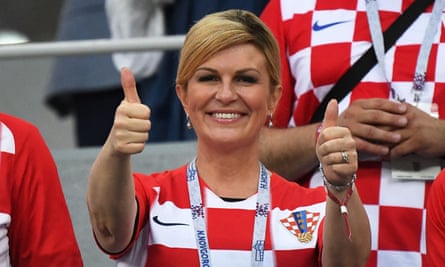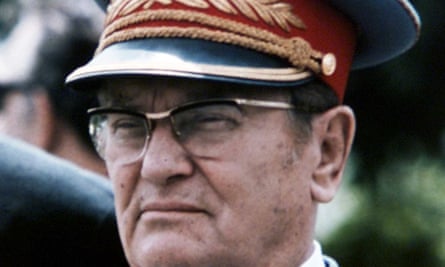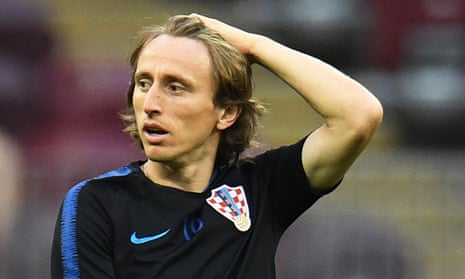The Croatian team that meet England in the semi-finals of the World Cup tonight are representing a very different country to when we last reached the semi-finals on our debut, in 1998. Back then, Croatia was still a country with fresh memories of war and a shared dream to become part of the European Union, with its promise of prosperity and stability. It was the time of Croatian nation-building. A few years later, when I was travelling abroad and told people I was from Croatia, they only seemed to have heard of our former Communist leader, Tito, and Šuker, who became the top scorer at that ’98 World Cup.
Now, 20 years later, Croatia is known for Dubrovnik, the scenic town on the Adriatic coast that served as a set for Game of Thrones. Soon that will be joined by Vis, the setting of the fictional Greek island in Mamma Mia 2. And the name of the Croatian footballer on everyone’s lips is Luka Modrić, our linchpin.
This perfectly sums up the country’s historical trajectory: once Croatia was part of socialist Yugoslavia, part of the Non-Aligned Movement, committed to global peace and trans-national cooperation, building gigantic infrastructure projects across Africa and the Middle East. Today Croatia is famous only for tourism or football.

Sport has always been a highly politicised form of national expression in post-socialist Croatia, with footballers often described as “heroes” or “warriors”. The country’s first president, Franjo Tuđman, proclaimed that “football victories shape a nation’s identity as much as wars do”, echoing the George Orwell quote that football is nothing but “war minus the shooting”. Football was also used to generate popular support for Tuđman’s “national idea” (that was leading towards the “civilised” EU) and to legitimise his rule.
Likewise, the current World Cup is being (mis-)used by the nationalistic forces and the current president, Kolinda Grabar-Kitarović, who, by being seen to jump up and down at matches, is campaigning for next year’s presidential elections.
In 1998, the excitement surrounding the World Cup was intrinsically tied up with the excitement about the country’s future in the EU; today’s elation is more about a longing for the past, when a good future was still possible. Now, our economy and society is on its knees, with massive emigration and 43% unemployment among young people.
Whereas today’s players are haunted by the ghost of that lost semi-final (to France), the ghost that haunts the country is that of a failed “transition” (from communism to capitalism). And the only collective hope and excitement seems to be football.
What is interesting about tonight’s game in Moscow between England and Croatia is that the two countries have more similarities than it might at first appear. The last time England were in a World Cup semi-final, in 1990, Croatia had yet to gain independence. We only joined the EU in 2013 – unaware it was like joining the Titanic just before it hit the iceberg. The UK today is attempting to jump ship, only to discover that its own life raft is sinking. With recent cabinet resignations and the never-ending Brexit impasse, it seems this World Cup is the UK’s hope of last resort too.

For at least one and a half hours this evening, when the match is played in front of huge crowds in both countries, it will be the only time when almost the entire population can lose themselves in euphoria and anticipation of a happy outcome.
In other words, Croatians are well aware that the only chance they may have to win anything these days is on the football pitch. And doesn’t the same go for England? Instead of romanticising the World Cup, we should see it for what it is: an inverted reflection of the very thing that is missing in politics today – namely, hope.
The lesson that we on the left should take from this World Cup is its ability to make us feel we are part of something bigger than ourselves and to recreate the communal ethos lost in progressive politics. This was illustrated by the Mexican fans jumping for joy after their team’s win over Germany. There were so many fans that together they caused a mini earthquake. Maybe this is showing us that nationalism and populism aren’t, as we feared, the only form of collective mobilisation that can bring people together with a shared belief in the future. What we need to do now is to harness the feeling of togetherness that this World Cup has created for participatory politics.
So, whoever reaches the final tonight, the more important question for us on the left is not so much whether it will ever be possible to free football from the nationalist ethos, but how can we, regardless of national boundaries and national identities, reinvent hope and the collective spirit of building a common future. If the 2018 World Cup is being described as a European battle, is there a future for Europe other than good football?
